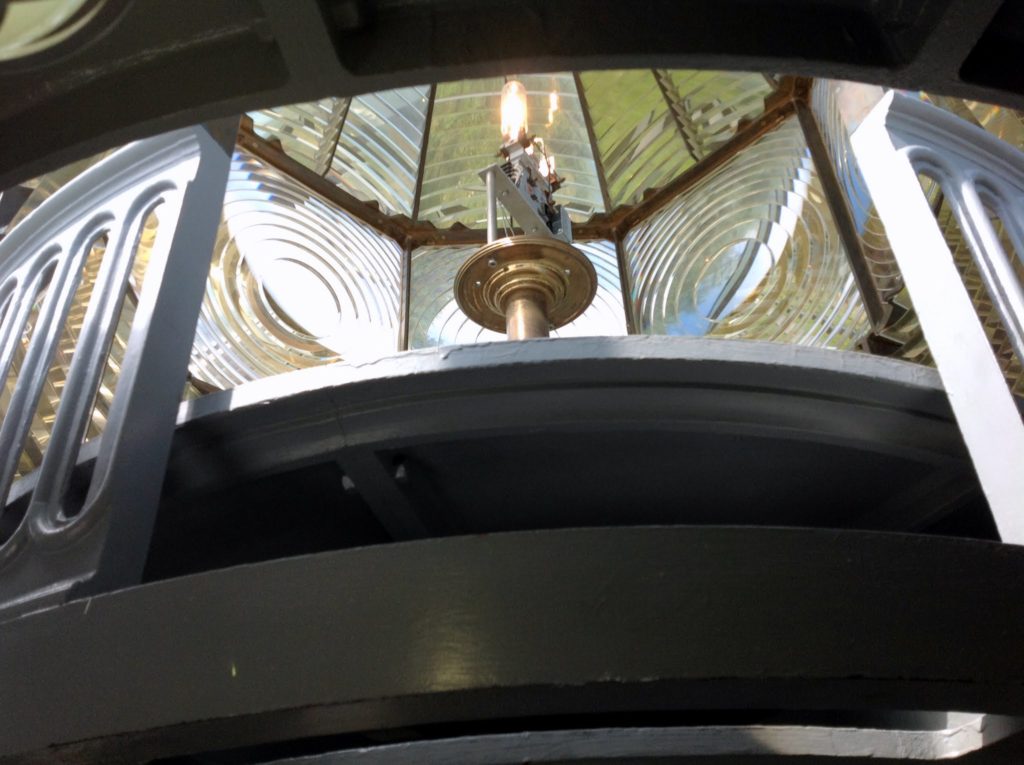
The generosity of God’s people
Proverbs 21: Sinners are always wanting what they don’t have; the God-loyal are always giving what they do have.
One of my favorite people in the Bible is Paul’s first side-kick, Barnabas. His name means “Son of Encouragement;” a nick name given to him by the Apostles. We first meet this encouraging gentleman in Acts 4. There’s a financial need in the young church and Barnabas sells some land he owns and gives the proceeds to the church. As we continue reading in Acts we find that this good man is always unselfish and giving. The wise man of the Proverbs says that a characteristic of a sin dominated world is to want that to which one has no right. Meanwhile, a characteristic of God’s people is freely giving away what they do have. Barnabas is an example of that approach to living and I want my life to be an example of it too.
Take Away: The people of the Lord are a generous people, how can I best demonstrate that today?
Tag: generosity
Devotional on Haggai

My attitude toward things that matter to the Lord
Haggai 1: I’ve matched your tight-fisted stinginess.
Jesus taught his disciples to pray, “Forgive us our debts as we also have forgiven our debtors.” Generally, I put about 95% of the emphasis on the first part of that statement. I certainly know I need the Lord’s forgiveness for the many “debts” of my life. It makes me a bit uncomfortable to realize that the Lord uses the level of my forgiving attitude toward those indebted to me as his measure of his forgiveness in my life. In the passage before me today the Lord uses Haggai to deliver a message concerning current events in the lives of the people of his day. They’ve been stingy in their support for rebuilding the Temple. Now, the Lord says he’s treating them with that same level of stinginess. They’re holding back in supporting the rebuilding of the Temple and the Lord’s holding back in his provision of rain for their crops. I’m glad today for the abundant generosity of God. His provision in my life greatly exceeds all that I do for him. Still, there’s a time to be reminded that some of the Lord’s blessings to me are linked to my attitude toward the things that matter to the Lord. Jesus teaches me to pray, “Lord, forgive me to the same extent that I forgive others.” Today, Haggai adds that I should be able to pray, “Lord, care for the needs of my life in the same way I care for the place in which I worship you.” If that makes me squirm a bit, well, maybe it’s supposed to!
Take Away: Remember that some of the Lord’s blessings to us are linked to our attitude towards the things that matter to him.
Devotional on Matthew

The Perfect Sermon
Matthew 5: Live generously and graciously toward others, the way God lives toward you.
In one glorious Sermon Jesus sums up the life to which God calls us. In every word we hear pure gold. It’s in retrospect that I realize that this beautiful, perfectly constructed Sermon challenges me at every level of my life. This chapter of the Sermon touches on everything from how to be blessed, to heavy topics like murder, adultery and divorce. Jesus deals with the promises we make and our relationships with our enemies. Obviously, the religion he teaches isn’t merely about “me and God.” Just about every word in this perfect Sermon is about “me and you.” It concerns my relationship with people I like (and maybe like too much according to the section on adultery) and people I don’t like (I’m to settle things with my old enemy quickly before things get even worse). He sums up this first part of the Sermon by teaching me to live “generously and graciously.” Rather than protecting my turf I’m to think the best of people and be generous in my dealings with them. This pretty Sermon has teeth. It’s supposed to work out here in the real world. And, just so I clearly understand the measure of this gracious, generous life style, Jesus tells me that I’m to treat others in the same gracious, generous way God treats me. I need to spend a whole lot of time here at the Sermon on the Mount.
Take Away: The Christian life is as much about “me and you” as it’s about “God and me.”
Devotional on Acts

Free will offering
Acts 5: The money was yours to do with as you wished.
As the Church is being established there’s wonderful unity among the believers. These first Christians love and care for one another. If someone is in need, those with resources take care of that need. We first meet Barnabas because he sells some land and brings the money to the Church to use in meeting the needs of some of his fellow believers. Apparently, the action of Barnabas has the unintended result of making him somewhat of a celebrity among the believers. I say this because immediately following is the story of a couple that attempts to gain favor in the Church without making the same level of sacrifice. Ananias and Sapphira are part of the Church. They see what Barnabas does and the reaction of people and decide to follow suit. However, they don’t want to give all they receive in the sale of their land. Instead, they scheme together to claim to give it all, but to actually hold back a portion of it. The result is the condemnation of the Lord and their untimely deaths. They’re judged by God, not for withholding a portion of the money from the sale of their property, but for doing so and then lying about it. I find it interesting that Peter, as he realizes what they’ve done, says, “Before you sold it, it was all yours, and after you sold it, the money was yours to do with as you wished.” Sometimes I read about how the early Church operated, that they “shared everything,” and come away thinking that the preferred model for the Church is communal living in which there’s no private ownership. I might even go a step farther and think that socialism is more “Christian” than is capitalism. It’s enlightening to balance the “shared everything” statement against “before you sold it, it was all yours” and “the money was yours to do with as you wished.” As I make this connection I see that the action of Barnabas and some unnamed others is the real deal. They don’t give what they have because socialism is God’s preferred mode of operation for the Church. Rather, they give because they want to. It’s theirs and there’s nothing wrong with them keeping it. Instead, though, they see the need of fellow believers and want to meet that need.
Take Away: Obviously, required generosity isn’t really generosity at all.
Devotional on 2 Corinthians

Hum “Family of God” as you read this one
2Corinthians 9: God loves it when the giver delights in the giving.
In spite of Paul having written some pretty stern stuff to them, he remains confident of his good relationship with the Corinthians. In fact, he moves from the topic of his first letter to them to encourage them to be generous in their giving to a special relief offering he’s collecting to be taken to the Christian poor in Jerusalem. If you think about it it’s quite an impressive thing he’s doing. These Gentiles wouldn’t have given a second thought to some Jews living in Jerusalem just a few years earlier. They felt no connection to them and they certainly wouldn’t have considered sending them a relief offering. Now, though, it’s all changed. Their lives are now linked to the lives of people throughout the region. Before it was “us and them” but now it’s all “us.” What has happened? Jesus! His presence in their lives has made them part of a family. These days, they not only know about fellow believers in distant Jerusalem, but they’re willing to send them some of their hard earned cash to help them through hard times. What Paul began so long ago continues to this day as Christians send offerings to people in distant places in the Name of Jesus. God’s people are the most generous people on the face of the earth. The reason, according to Paul, is that we’re behaving like our Heavenly Father who’s the most generous Being there is. We’re part of a great family and our Father has set for us a powerful example of giving. We give to all who are in need, but we’re especially willing to give, even sacrificially, to help our brothers and sisters. “I’m so glad I’m a part of the family of God.”
Take Away: God’s people are wonderfully generous people.
Devotional on 1 Timothy

Money matters
1Timothy 6: A devout life does bring wealth, but it’s the rich simplicity of being yourself before God.
The final chapter of this first letter to young pastor Timothy is about money. Paul’s concerned about church leaders who see their position as a way to make some easy money. Timothy’s warned to identify such people as quickly as possible to keep them from infecting the whole church with their “germs of envy, controversy…” and other equally bad stuff. Timothy, himself, as a man of God, is to pursue, not money, but “wonder, faith, love, steadiness, courtesy.” Finally, Paul addresses how Timothy’s to deal with those who are already wealthy. He’s to warn them to not be money centered but, instead, to handle their riches in the same way the Lord handles his: with extravagant generosity, helping others out of their bounty. Even though this is a short course on the topic of money and the church we find here a well-rounded treatment of the subject. First, watch out for church leaders who are in it for the money. Second, the pastor must be careful to not get caught up on the pursuit of money. Finally, those who do have money are to handle it with care, letting the generosity of the Lord, himself, be their example.
Take Away: Money doesn’t have to be a curse – rather it can be a way in which we reflect the generosity of the Lord.
Devotional on Genesis
God’s been good to me
Genesis 34: God has been good to me and I have more than enough.
Jacob, now also named Israel, faces his original victim. He was born right after his twin brother Esau and he came out of the womb holding the heel of his brother; apparently trying to get a bit of a free ride! Esau grew up to be a down to earth, hardworking guy and Jacob grew up to be a person who takes advantage of down to earth, hardworking guys. Now it’s time to face the music. Blessed beyond his wildest dreams he, who left home with nothing, returns home with wives, children, servants, and a wealth of livestock. The first thing he has to do is to make things right with Esau. Jacob showers his brother with gifts. Actually, Esau has also done alright. Still, Jacob insists and his reason is the right one. “God has been good to me and I have more than enough.” It’s time to make things right with his brother. Jacob gives God the credit, acknowledging his blessings, and freely shares out of his abundance. Having said all that, I can add my own testimony. God’s been good to me too, and I also have more than enough. How can I use God’s abundant provision in my life to be a blessing to someone today? How about you? How has the Lord treated you?
Take away: How should a blessed person act?
Devotional on Deuteronomy
Generosity
Deuteronomy 15: Give freely and spontaneously. Don’t have a stingy heart.
The people in Moses’ congregation are a blessed people. If not for the grace of God they’d be slaves in Egypt. Because of God’s generosity they have food to eat and clothing to wear. The Lord has protected them from their enemies and provided guidance to them in their travels. Even now they’re poised to occupy the Promised Land. Moses reminds them that blessed people ought to be a blessing to others. Those who have received much should be givers and that giving should flow freely from their hearts. Does this describe me? The part about being “blessed” sure does. God has been good to me on many levels. Now, I need to ask him to help me to have a giving heart that will result in genuine generosity. Lord, please deliver me from having a “stingy heart.”
Take Away: Blessed people are to be people who bless others.
Devotional on 1 Chronicles

The children of good stewardship
1 Chronicles 29: It was all yours in the first place!
Centuries before Paul ever writes to Corinth, encouraging them to give selflessly and stating stewardship principles, David lays out some giving concepts for the people of Israel. They’re raising an offering for the construction of the Temple and David’s addressing the Almighty in prayer. He’s reminded that this nation began as pitiful slaves in Egypt, without a square inch of land to call their own. Over the years God blessed them and now they can no longer say, “Silver and gold have I none.” Still, in a real sense they continue to have nothing of their own. All that they have has been graciously provided to them by the Lord. As plans are being made to build a House of Worship it only makes sense that they return a portion of that which has been entrusted to them that the planned building might be constructed. The people come through with wonderful generosity and David prays that this giving spirit might always be seen in their lives. The result of all this is the Temple. Also, there’s a wonderful spirit of celebration. Great accomplishments and great joy: these things are offspring of good stewardship.
Take Away: When the people of the Lord are faithful stewards of all the Lord has placed in their hands great things are accomplished to the glory of God.
